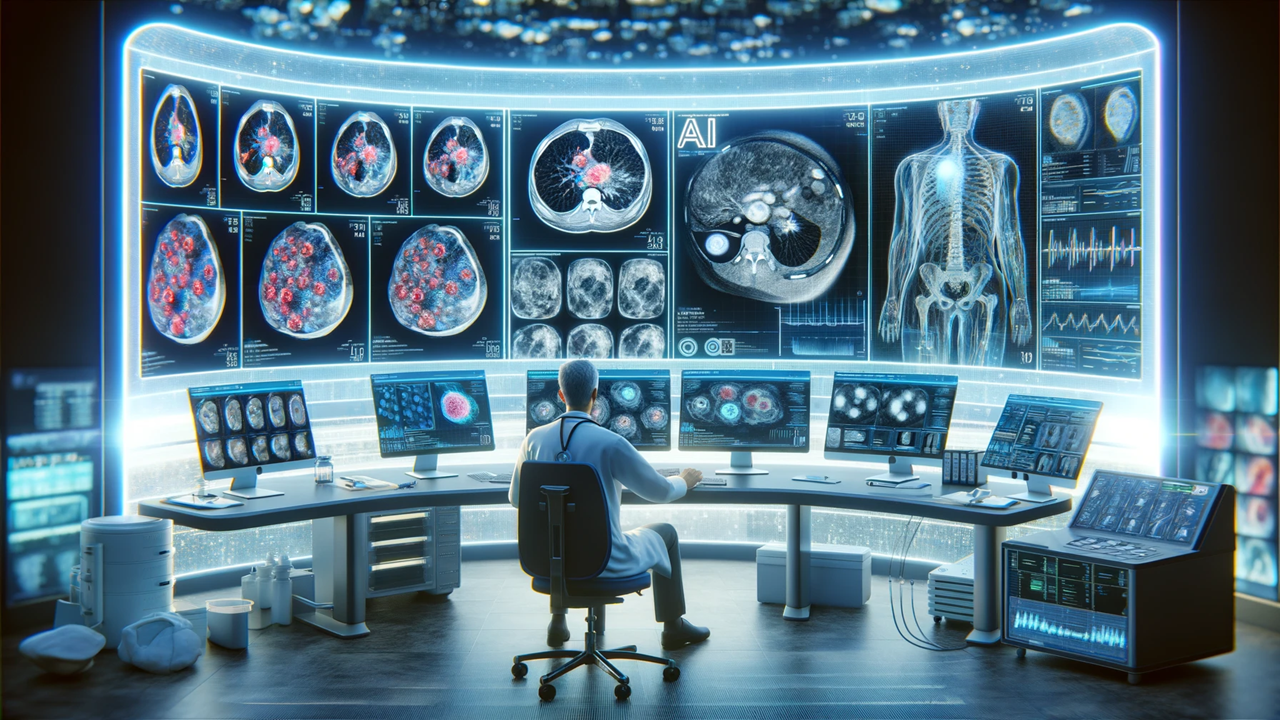How AI is Revolutionizing Early Cancer Detection
This article examines how AI is enhancing early cancer detection through improved screening techniques. It highlights AI's applications in diagnosing various cancers, its benefits for accuracy and healthcare efficiency, the challenges to its implementation, and the future prospects for integrating AI into everyday medical practices.

The integration of Artificial Intelligence (AI) into medical diagnostics is not just a technological advancement; it represents a paradigm shift in how healthcare professionals approach early cancer detection. AI's ability to analyze complex medical data with unprecedented accuracy and speed offers a promising horizon for the field of oncology. This article, titled "Predicting to Prevent: How AI is Revolutionizing Early Cancer Detection," explores how AI-driven technologies are enhancing screening methods, potentially transforming healthcare practices by identifying treatable cancers at their earliest stages.
The Challenge of Early Detection
Early detection of cancer significantly increases the chances of successful treatment and survival. However, traditional diagnostic methods can sometimes be slow, costly, and not sensitive enough to detect all types of cancer at an early stage. This is where AI comes in, offering tools that can potentially overcome these limitations.
AI in Cancer Screening: How Does It Work?
AI technologies, particularly those based on machine learning algorithms, are being developed to improve the accuracy and efficiency of cancer screenings. These algorithms are trained on vast datasets of medical images, such as mammograms and CT scans, learning to recognize the subtle patterns that might elude even skilled radiologists. This training allows AI systems to identify anomalies that suggest the presence of cancer cells at much earlier stages than currently predominant methods.
Applications Across Various Cancers
AI's application in oncology is broad and varied:
- Breast Cancer: AI algorithms improve the accuracy of mammograms by identifying minute calcifications and density changes that are potential early signs of cancer.
- Lung Cancer: By analyzing CT scans, AI helps detect early-stage lung nodules that might be missed during manual screenings.
- Skin Cancer: AI-driven image recognition is used to differentiate between benign and malignant skin lesions with a high degree of accuracy.
Enhancing Accuracy and Reducing Biases
One of the key advantages of AI in cancer detection is its ability to consistently provide unbiased results. Unlike human screeners, who may be influenced by fatigue or subjective judgment, AI systems can maintain high levels of accuracy across many cases. Moreover, AI can integrate findings from various sources — genetic data, patient histories, and demographic information — to make comprehensive evaluations that are not feasible at scale for human doctors.
Economic and Operational Benefits
Implementing AI in cancer screening not only has the potential to save lives but also to reduce costs associated with healthcare. By catching cancer early, AI-driven screenings can decrease the need for extensive, expensive treatments that are often required for advanced-stage cancers. Furthermore, AI can streamline workflow in radiology departments, allowing for more patients to be screened with the same resources.
Challenges to Implementation
Despite its benefits, the path to integrating AI into regular clinical practice is fraught with challenges:
- Data Privacy and Security: Handling sensitive health data requires robust security measures to prevent breaches, a critical consideration as AI systems require extensive data to function effectively.
- Regulatory Hurdles: AI applications in healthcare must undergo rigorous testing and approval processes by regulatory bodies to ensure they are safe and effective.
- Technological Disparities: There is a need to address the digital divide, as not all healthcare facilities have access to the latest technology and data infrastructure required to implement AI effectively.
The Future of AI in Cancer Detection
As AI technology continues to evolve, its integration into oncological practice is expected to deepen. Future developments might include more personalized AI assessments that can predict individual risk factors based on genetic information, lifestyle, and other health data, offering truly customized preventive care strategies.
Conclusion
AI's role in transforming cancer detection is just beginning to unfold. With its potential to enhance diagnostic accuracy, reduce costs, and streamline healthcare operations, AI could indeed redefine the future of cancer care. As we continue to advance technologically, the focus must also remain on ethical, secure, and equitable implementation to ensure that all patients benefit from these innovations.










